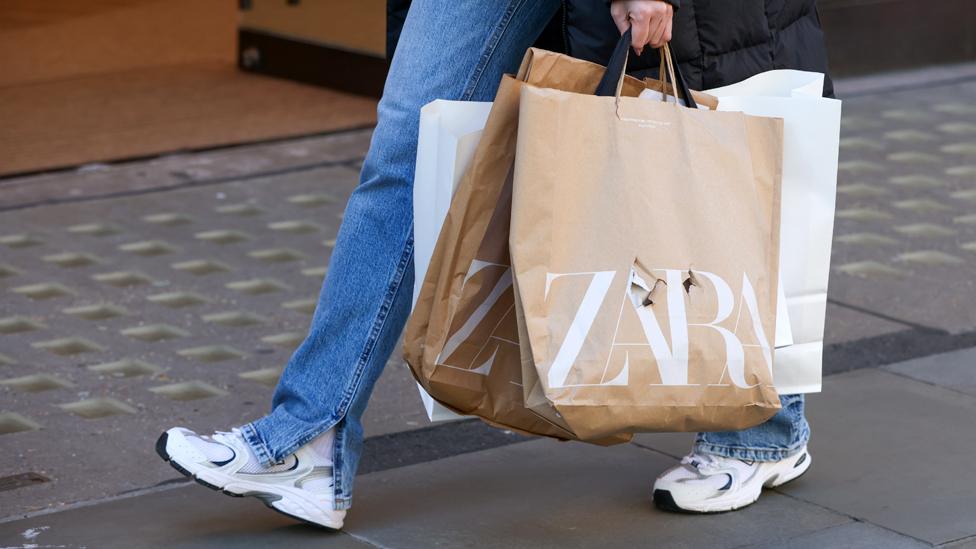Starbucks blames 'misrepresentation' after Israel Gaza protests
- Published
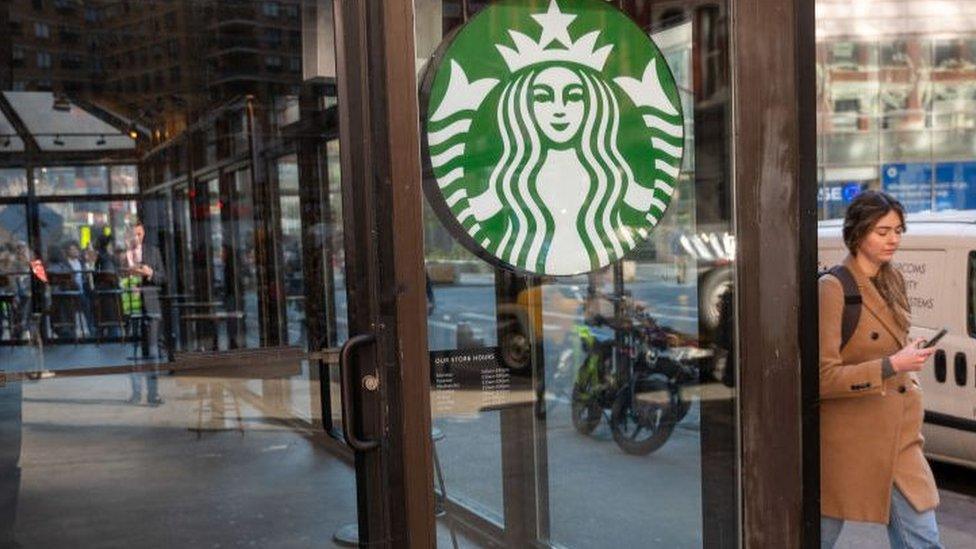
Starbucks says it has been affected by "misrepresentation" of its views
Starbucks has published a letter calling for peace and blaming "misrepresentation" of its views for vandalism of its stores.
The message, external from boss Laxman Narasimhan comes as the coffee giant grapples with protests, external and boycott campaigns on social media tied to the Israel-Gaza war and a union fight in the US.
Reports of slower sales have also hit its share price.
It is unclear if the message will ease tensions.
In the letter to staff, which was posted on the firm's website, Mr Narasimhan did not mention the Middle East explicitly but said that "conflicts in many parts" had unleashed violence, hate, lies and weaponized speech, "all of which we condemn".
"Cities around the world - including here in North America - have seen escalating protests. Many of our stores have experienced incidents of vandalism. We see protestors influenced by misrepresentation on social media of what we stand for," he said.
He added: "Our stance is clear. We stand for humanity."
Starbucks was vaulted into debates over the Middle East when the union working to organise baristas in the US posted a message on social media expressing "solidarity" with Palestine, shortly after the 7 October attack by Hamas.
The post, which the union said was not authorised by leaders, spread rapidly despite being taken down, and sparked backlash against the firm.
Starbucks said it disagreed with the union's statement. It has described, external its official position as condemning "violence in the region".
It subsequently sued the union for trademark infringement, saying use of its logo was confusing the public and it needed to protect the safety of workers and halt business damage.
The back-and-forth spurred calls for boycotts by people in both pro-Israel and pro-Palestine camps around the world.
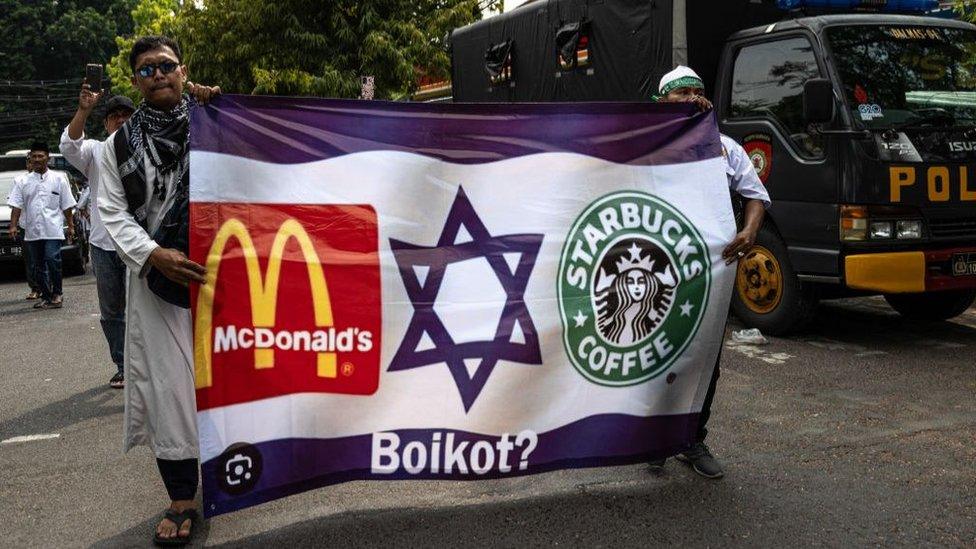
Indonesian protesters in October targeted Starbucks, and others considered to support Israel
The issue has been mixed with an already bitter union fight in the US.
In late November, the Starbucks Workers United union, which represents staff at about 350 of the company's roughly 10,000 stores in the US, staged a walkout. It wanted to call attention to its cause and to hard-line tactics it says it has faced from the company, which US labour officials have ruled has broken labour laws repeatedly.
Some on social media say the boycotts and walkout have hurt the company's image and share price, which had surged after a strong earnings update but has recently fallen more than 7%.
Analysts following the company, though, said the fall reflects expectations of weaker sales driven primarily by wider economic forces.
A company spokesman said the swirl of misinformation had become untenable.
He said Mr Narasimhan was focused on addressing employees who have had to deal with customers raising complaints sparked by the misrepresentation.
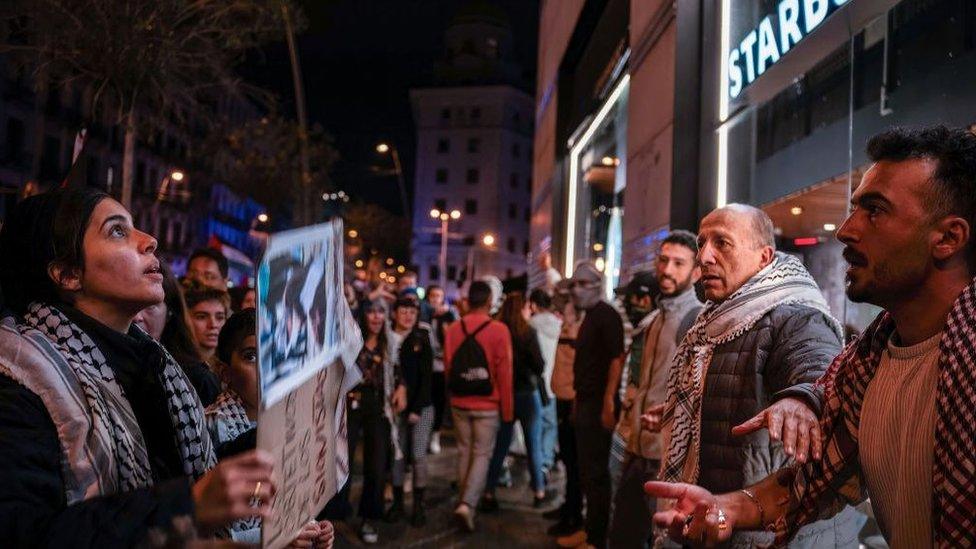
Tensions outside a Starbucks in Barcelona during the pro-Palestinian march.
In the letter Mr Narasimhan said his goal for 2024 was to "reinvigorate our partner culture". The company also recently said it had re-approached the union for talks, a significant shift in tone.
"It is time to re-stitch the fabric of the green apron for all partners," he wrote.
He concluded: "In my daily meditation, I pray for peace — immediately."
The letter did not appear to assuage the firm's critics, with some accusing it of being vague.
Michelle Eisen, a Starbucks Worker United leader, said the company was still retaliating against pro-union workers.
"Starbucks claims to want a new relationship with workers and our union, but actions speak louder than words," she said.
Starbucks is one of the most high-profile firms to be swept up in the conflict over the Israel-Gaza war.
Zara and M&S have both been criticised for adverts filmed long before the conflict, which people criticised for seeming to make light of death in Gaza. Companies such as McDonald's, Google, and TikTok have also faced scrutiny, from staff and customers, over what they did or did not say about the conflict.
Related topics
- Published15 November 2023
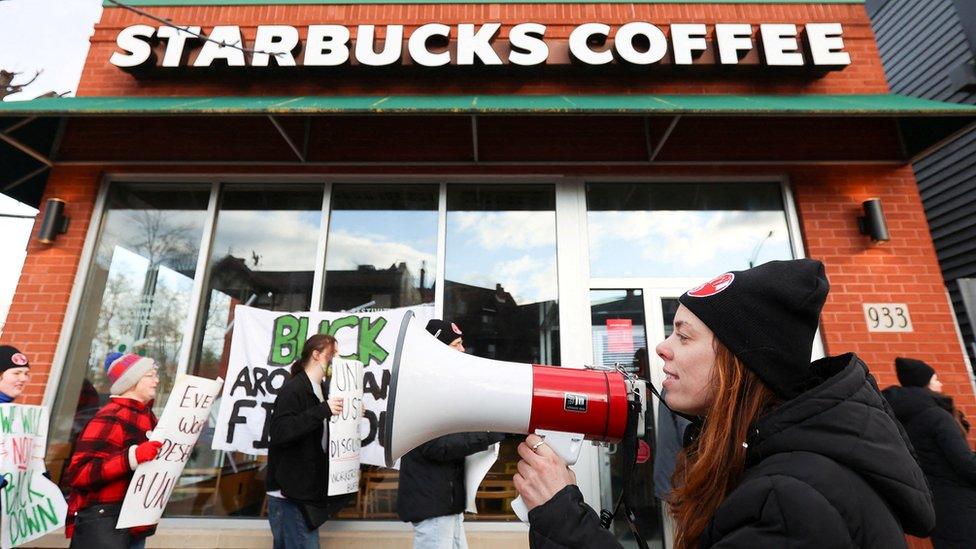
- Published12 December 2023
